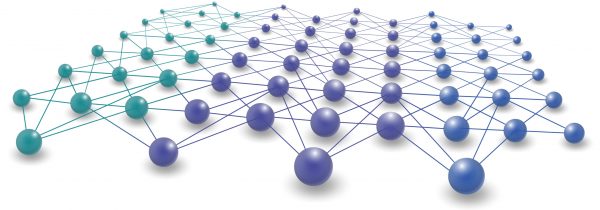Could deep learning change businesses?
By Aditya Abeysinghe

 Today, machine learning has changed many services that people use. Most apps, websites etc. used today have a machine learning process to improve functionality. Different techniques of machine learning are used based on the type of function(s) a system expects. Deep learning is a technique that has been used in the past few years as a self-updating, accurate method in many machine learning processes.
Today, machine learning has changed many services that people use. Most apps, websites etc. used today have a machine learning process to improve functionality. Different techniques of machine learning are used based on the type of function(s) a system expects. Deep learning is a technique that has been used in the past few years as a self-updating, accurate method in many machine learning processes.
What is deep learning?
Deep learning is a class of machine learning where the technique used tries to learn from the data. Like Artificial Neural Networks, deep learning use multiple layers to train and update its learning process at each training cycle. Deep learning methods are used for methods like image recognition or semantic analysis and use large training datasets for training. Deep learning algorithms use large computational and storage requirements to train models due to multiple layered processes and cycles used.
Why deep learning?
One use of deep learning is for classification of objects in images and videos. For example, deep learning is used to identify animals, humans, and other objects from images. By providing a dataset of known images with objects to classify and providing an output, a classification algorithm can classify when a new object is provided. Deep learning can be used for complex classifications where multiple labels need to be classified. For multi-label classifications, different Artificial Neural Networks such as Convolution models can be used.
Another use of deep learning is for clustering data based on categories. Clustering is used to divide data into clusters and then identify on which cluster a new object should be placed. For example, clustering can be used to classify people based on their age, gender, or other categories. Deep learning methods can be used for complex clustering with multiple classes such as for clustering objects in images or in text. With deep learning, the algorithm can predict better output as it self-learns using previous cycles. Therefore, they are used for models which require accurate output over computational complexity.
Where is deep learning used in business?
From social media to voice assistants deep learning is used in many applications today. However, businesses use deep learning to add functionality to their services. One example of using deep learning in business is to improve social media posts using collected data of customers. Many large businesses collect data of customers using surveys, customer navigation in websites or apps etc. These businesses store which products, data, and content customers frequently view or purchase. Based on this content they suggest new products or website content such that these businesses generate sales when customers visit this suggested content. Businesses could also share social media content based on these data to their customers.
Another use of deep learning in business is to analyze sensor data of different inputs such as temperature, water pressure, and electricity to control factory machines and other equipment. Most systems need to control these inputs real-time and require self-learning models to update controls. Deep learning models which can update their processes based on cycles they have processed can be used to control such systems without humans.
Is Deep Learning beneficial?
Deep learning is used by businesses that can afford to create learning models and use them for processing. Server hardware which can bear heavy computation and storage are required and costs for maintaining, processing, and ensuring reliable connections are higher when compared to machine learning models which do not use deep models. However, many businesses use deep models to improve functionalities provided, decrease effort to manually monitor systems and process data of systems with less time and cost.
Image Courtesy: https://orbograph.com/







